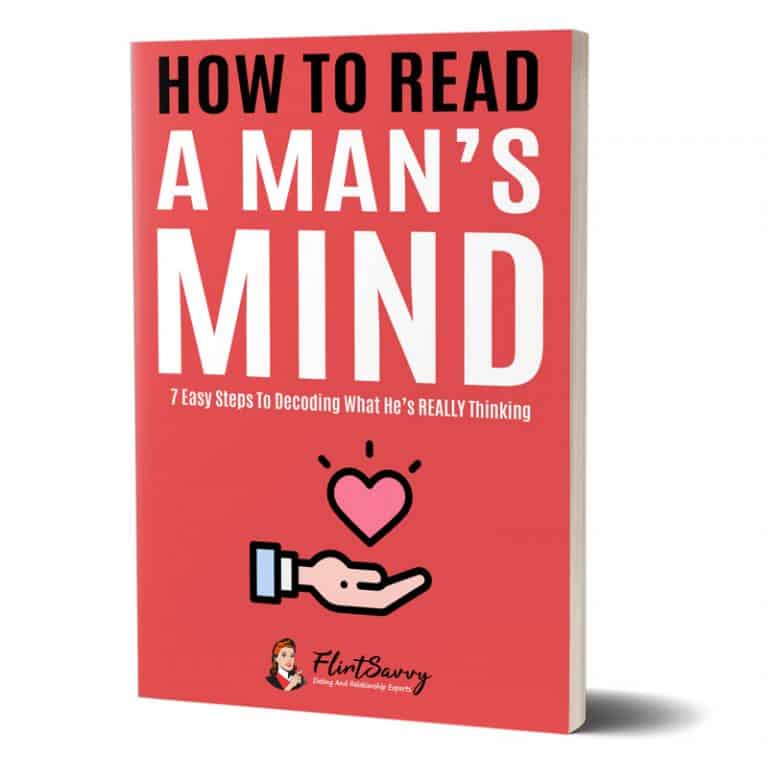Have you ever found yourself feeling irrationally angry at your significant other, even when they haven’t done anything wrong?
It’s a frustrating and confusing experience that can leave you wondering what’s going on inside your head. The truth is, there are many possible reasons why you might be feeling this way.
From childhood trauma to hormonal imbalances, anger can be a symptom of a variety of underlying issues. In this article, we’ll explore some of the most common causes of unexplained anger in relationships and offer tips for managing your emotions in a healthy way.
So take a deep breath, grab a cup of tea, and let’s dive in.
Why Am I Mad At My Boyfriend For No Reason?
One of the most common reasons why you might be feeling angry at your boyfriend for no reason is childhood trauma. Childhood sexual abuse, in particular, has been linked to a higher likelihood of developing borderline personality disorder, which can cause emotional dysregulation. This means that your moods can swing from one extreme to another, and you may overreact to perceived rejection or abandonment.
Another possible cause of unexplained anger is a communication dynamic known as “pursue-withdraw.” This is when one partner in a relationship pursues the other, while the other withdraws. This can lead to feelings of frustration and anger, even when your partner hasn’t done anything wrong. If you find yourself in this situation, it’s important to seek out evidence-based forms of marriage counseling, such as the Gottman Method or Emotionally Focused Couples Therapy.
Physiological processes can also play a role in unexplained anger. Hunger, chronic pain, fear, and panic can all provoke anger for no apparent reason. Additionally, mental health issues such as bipolar disorder, mood disorders, and neurosis can cause anger as a symptom. Hormonal imbalances, such as elevated levels of cortisol or thyroid hormone imbalances, can also lead to unexplained anger.
Childhood Trauma And Unresolved Emotions
Childhood trauma can have a profound impact on a person’s emotional and mental well-being. Whether the trauma was physical, sexual, or emotional, the effects can manifest in a variety of relationship issues. Survivors of childhood trauma may struggle with trust issues, finding it difficult to form intimate attachments and believing that no one can be trusted. They may also experience feelings of unworthiness and believe that they are flawed and not good enough for love.
Children who experience overwhelming fear in their early relationships or who have absent, insecure or disorganized attachment styles may develop coping mechanisms that are self-limiting and do not allow for growth and healthy relationships. These coping mechanisms may include thoughts such as “don’t trust, it’s not safe,” “don’t reach out, don’t be a burden to anyone,” and “don’t dwell on how you feel, just move along.” While these thoughts may help a person survive in the short term, they can have a detrimental impact on their ability to form healthy relationships later in life.
Even if a survivor of childhood trauma finds a safe and loving partner later in life, the self-limiting scripts developed during childhood can still impact their relationships. These scripts are all they have to survive, and they cannot simply discard them and start over. Healing from childhood trauma takes time, and the brain needs time to process traumatic information.
Partners of survivors of childhood trauma should avoid trying to fix or heal their partner’s trauma and accompanying symptoms. Healing takes time, and the best thing a partner can do is be available to listen when their partner needs to talk. Being emotionally supportive by offering statements such as “that sounds like it is really difficult to deal with” and “I hear you saying this is really hard for you right now” can also be helpful.
It’s important for partners of survivors of childhood trauma to understand that triggers can cause unresolved trauma to resurface and create a fight, flight or freeze response. These responses may have been used by the survivor during childhood to help them cope with their trauma. For example, someone who fought back during their childhood trauma may present physical or verbal aggression in their adult relationships. Similarly, someone who ran away from their childhood trauma may react in the same way during intimate or emotional situations.
Hormonal Imbalances And Mood Swings
Hormonal imbalances can have a significant impact on mood swings, especially in women. For example, during the menstrual cycle, fluctuations in estrogen and progesterone levels can lead to irritability, sadness, and anxiety. In fact, research shows that around 90% of people who menstruate experience symptoms of premenstrual syndrome (PMS), which can include feeling emotionally unstable.
In men, low testosterone levels can be a cause of mood swings. As men age, their testosterone levels may dip, causing irritability, depression, and fatigue. Poor sleep can also contribute to hormonal imbalances and mood swings in men. Men who frequently wake during the night are more reactive to stress, and their bodies produce higher levels of the stress hormone cortisol compared to those who get better quality sleep.
Hormonal imbalances can also be caused by other factors such as medication interactions, nutritional disorders, and neurological damage. Anger is a common symptom of depression, and anger and depression often go hand-in-hand. Therefore, if you find yourself experiencing unexplained anger or mood swings, it’s essential to seek professional help from a medical doctor or therapist to determine the root cause and develop an effective treatment plan.
Relationship Issues And Communication Breakdowns
Relationship issues and communication breakdowns can also be a major cause of unexplained anger towards your boyfriend. Lack of communication or poor communication can lead to blame, relationship anxiety, depression, and resentment in marriage or relationships. It may increase the likelihood of a breakup, separation, or divorce. When partners get locked in a pattern of blaming each other, they each see the other as the cause of their problems. This can lead to emotional distance and feelings of being emotionally unavailable or too demanding.
Anger is a natural human emotion that tends to make its presence known in any relationship. It’s important to manage anger and your response to an angry partner in a useful way that promotes intimacy and maturity in your relationship. One strategy to manage anger is to take time to think before reacting. This can help you calm down and respond in a more constructive way. Another strategy is to recognize that blaming yourself for everything is not helpful. Relationships are two adults making choices, and it’s important to recognize that both partners have a role in the relationship.
If you find yourself in a harmful environment, it’s important to recognize it and do something about it. Talking with your partner, finding a new job, changing careers, going to individual and marriage counseling are all good ways to promote health and relieve stress in your relationship. Additionally, exercise, eating healthy foods, and using meditation and yoga can also help manage stress and promote overall health in your relationship.
Stress And External Factors
Stressful events and external pressures can also contribute to unexplained anger towards your boyfriend. Family, friends, religious, and societal pressure can create anxiety about needing to be in a relationship, which can obscure your focus on deciding whether this is the right relationship for you. It’s important to recognize these external factors and how they may be impacting your emotions towards your partner.
Financial problems, the loss of a job, or the death of a loved one can also create stress within a relationship. While it’s normal to experience conflicts and struggle in any relationship, overly-stressful situations can lead to an unhealthy dynamic. It’s important to communicate openly with your partner about how external factors are affecting you and your relationship. Keeping conversations focused on the current problem, using data to support your points, and setting clear boundaries can help reduce stress levels and promote a healthier relationship.
It’s also important to recognize that anxious thoughts are personal and intimate. Letting your partner in on these thoughts is an important part of building intimacy and closeness. However, it’s important to avoid blaming yourself or your partner for these thoughts and feelings. Instead, try to focus on working together as a team to address any external stressors that may be impacting your relationship.
In the heat of the moment, it’s easy to be reactive and say things we don’t mean. However, taking a step back and gaining some perspective can help us respond with more awareness and sensitivity to our partner. If we feel triggered by our partner in an intense way, it may be a clue that something deeper is being surfaced. Taking a walk or a few deep breaths can help us remain in the moment and choose how we want to respond with more clarity and understanding.
Lastly, it’s important to focus on self-management when dealing with external stressors in a relationship. Going silent or giving your partner the silent treatment may temporarily calm you down but is likely to increase their anxiety or anger. Instead, communicate openly with your partner about your need for space and time to organize your thoughts. Coercing or threatening them into reconciliation is likely to backfire and cause even more distance between you. By focusing on self-management techniques such as mindfulness, self-care, and seeking support from trusted friends or professionals, you can better navigate external stressors in your relationship and maintain a healthy dynamic with your partner.
Coping Strategies For Managing Unexplained Anger
If you find yourself experiencing unexplained anger, it’s important to develop healthy coping strategies to manage your emotions. Here are some techniques to help you manage your anger:
1. Take Time to Think: When you feel yourself becoming angry, take a step back and give yourself time to think. This will allow you to process your emotions and respond in a more constructive manner.
2. Exercise: Physical activity can help reduce stress and anger. Try going for a brisk walk or run, or engaging in other enjoyable physical activities.
3. Count to 10: Before reacting, take a moment to count to 10. This can help you avoid saying or doing something you may regret later.
4. Identify Triggers: Try to identify the triggers that cause your anger. Once you know what triggers your anger, you can develop strategies to avoid or manage those triggers.
5. Practice Self-Care: Taking care of yourself is important for managing your emotions. Get enough sleep, eat a healthy diet, and engage in activities that make you happy.
6. Seek Professional Help: If your anger is causing significant problems in your life, it may be helpful to seek professional help. A therapist can help you identify the underlying causes of your anger and develop effective coping strategies.






